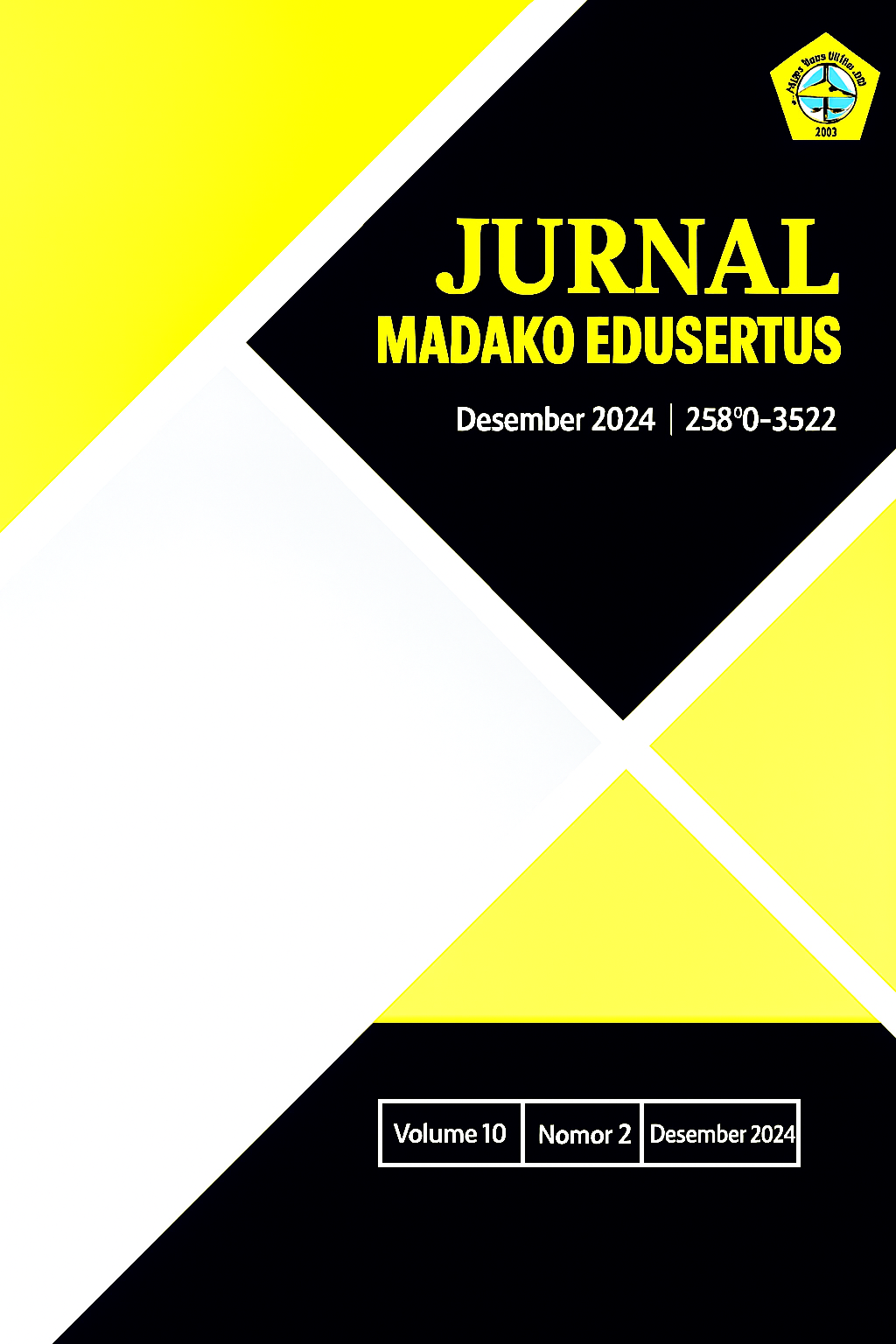Transformation of educational management as the key to improving school quality
DOI:
https://doi.org/10.56630/jme.v10i2.1459Keywords:
Educational Transformation, Educational Management, School Quality ImprovementAbstract
One of the keys to the sustainable development of society and the nation is quality education. Educational management plays a crucial role in improving the quality of education in schools. Educational management encompasses planning, organising, directing, and controlling various aspects of education. Planning involves setting academic goals, developing curricula, and planning learning activities. Organising includes allocating resources, assigning tasks, and forming effective work teams. Directing involves coaching and developing students, and controlling learning activities. Educational management improves the quality of education through strong and visionary leadership, effective resource management, relevant curriculum development, ongoing evaluation, and strong collaboration between schools, teachers, parents, and the community. In the digital age, the appropriate use of information and communication technology is also crucial to improving the quality of education. To enhance the quality of education in schools, educational management must adopt an inclusive, responsive to change, and student-centred approach. This means prioritising teacher professional development, closely monitoring the learning process, and increasing parental participation and involvement in their children's education.
References
Alifah, S. (2021). Peningkatan kualitas pendidikan di indonesia untuk mengejar ketertinggalan dari negara lain. CERMIN: Jurnal Penelitian, 5(1), 113–123. https://doi.org/10.36841/cermin_unars.v5i1.968
Apriansyah, E., & Jasrial. (2023). Persepsi Siswa Tentang Kompetensi Sosial Guru di SMK Negeri 2 Padang. Journal of Practice Learning and Educational Development, 3(2), 124–129. https://doi.org/10.58737/jpled.v3i2.130
Aulia, N. A., Amirudin, A., & Muzaki, I. A. (2022). Pelaksanaan manajemen pendidik dan tenaga kependidikan dalam meningkatkan profesionalisme guru di sdn mekar mukti 01 cikarang utara bekasi. Idaarah: Jurnal Manajemen Pendidikan, 6(2), 370–379. https://doi.org/10.24252/idaarah.v6i2.29406
Hidayati. (2021). Students’ problems in speaking of the second year students of English education study program at Madako University. JME, 7(2), 1–17.
Ilham, D., S, M. R., Karunia, L., Saleh, S., & Brata, J. T. (2023). Peran Pemerintah dalam Mendorong Kualitas Pelayanan Pendidikan di Indonesia. Jurnal Pallangga Praja (JPP), 5(2), 155–162. https://doi.org/10.61076/jpp.v5i2.3736
Lee, O. L. (2020). PENGANTAR MANAJEMEN. In Revista Brasileira de Linguística Aplicada (Vol. 5, Issue 1).
Luqman Panji, A., Muadin, A., & Rifaddin, A. M. (2023). Gaya Kepemimpinan Kepala Sekolah dalam Meningkatkan Kinerja Guru SD Negeri 009 Penajam. Journal on Education, 06(01), 10369–10382. https://jonedu.org/index.php/joe/article/download/4755/3753/
Rahmawati, A. N. (2018). Identifikasi Masalah yang Dihadapi Guru dalam Penerapan Kurikulum 2013 Revisi di SD. Indonesian Journal of Primary Education, 2(1), 114–123. https://doi.org/10.17509/ijpe.v2i1.14227
Ramli, A. H., Putera, T. F., & Sudadi, H. (2022). Pengantar Manajemen Pendidikan. Bening Media Publishing.
Syahrizal, H., & Jailani, M. S. (2023). Jenis-Jenis Penelitian Dalam Penelitian Kuantitatif dan Kualitatif. Jurnal QOSIM Jurnal Pendidikan Sosial & Humaniora, 1(1), 13–23. https://doi.org/10.61104/jq.v1i1.49
Utamy, R., Ahmad, S., & Eddy, S. (2020). Implementasi Manajemen Sumber Daya Manusia. Journal of Education Research, 1(3), 225–236. https://doi.org/10.37985/jer.v1i3.26








